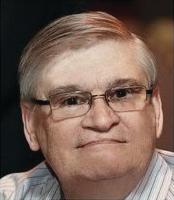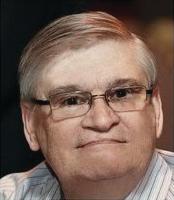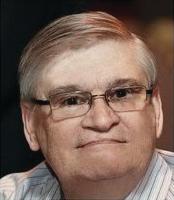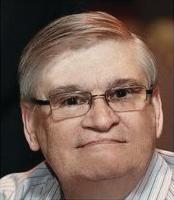When I was a boy, we played a game in which we asked a person to study a room filled with obstacles such as tin cans, chairs, and tables, and then blindfolded the person and quietly removed the objects. Our “victim” then had to cross the room, carefully avoiding the objects, not knowing that they were no longer there.
This game vividly illustrates the famous quote: “We have nothing to fear but fear itself.”
My grandfather delivered milk in a horse-drawn wagon years ago, and he told me that once the horse knew the route, it was hard to change its programming. In fact, the horse wouldn’t move until it thought the milk was delivered. The habit side of your mind operates just like a trained horse.
In “The Greatest Power in the Universe,” U.S. Andersen writes about our two minds: “The subconscious mind is the horse, and the conscious mind is the rider, and the horse does what the rider tells it to, and any rider can take over the horse, but without a rider, the horse acts crazy.”
The Inner Horse Wins
The habit side of our mind (I call it the “inner horse”) has a distinct advantage—it uses emotions. When intellect and emotions cross, emotions win every time.
That’s why knowing the cause of your fears is of little value. Managing emotions is like managing money. Most people have opinions about money management, and intend to do something about their financial future—but many fail to act on those intentions. Bank accounts grow through money management, not good intentions!
Emotional management is equally straightforward and action-oriented. Until you translate your intentions into actions, nothing changes. The inner horse wins. Unfortunately, your inner horse uses strange logic and often acts on flawed assumptions.
John G. Geier, Ph.D., co-author of “Energetics of Personality,” coined the phrase “private logic”—what he calls our “makes sense” system. People create their own little world and behave sensibly toward it.
I have a friend whose idea of relaxation is inviting friends over for a party. To me, unwinding is spending time with a small group of close friends or, better still, curled up with a good book.
How many times have your friends told you about a terrific movie, saying: “You'll love it!” Then you see it and leave holding your nose in disgust.
This is private logic in action. As much as we intellectually “know” this, many of us act shocked when others see things differently and behave accordingly.
For example, an executive attends a weekend retreat climbing rocks, ropes, and paddling a canoe down a raging river and proclaims: “What a great team-building experience. We’re all going! It'll be terrific!”
Shocked when others respond unenthusiastically, the executive labels people as “negative,” “resistant to change,” or “poor team players.”
Overcome Irrational Fears by Changing Behaviour
Even though your “inner horse” may tell you: “Human beings are emotional, this approach is cold-blooded and unemotional,” the following procedure uses strong emotions to challenge the human tendency to pander to immediate gratification.
If and when irrational fears strike, convert them into manageable concerns, responding in a way that is constructive and practical. Repeated application of this technique creates new and different habits of thinking.
What you say represents your thinking. Your thinking creates your actions. Your actions produce results. Change what comes out of your mouth (or spoken in your head), and you gain access to creating new behaviours, giving you access to new and different results.
Emotions are not you. They are predetermined responses based on old thinking habits. Thinking and acting like a helpless victim is a dangerous habit.
Psychotherapist Joseph Wolpe, best known for his work on behaviour therapy and assertiveness training, helped people overcome irrational fears by changing their behaviour—not by uncovering some supposedly deep-rooted cause. He routinely cured people in several weeks, not years.
David Clark, an Oxford psychologist, proved that many panic disorders are often misinterpretations of bodily sensations brought on by anxiety. Under mental stress, a faster heartbeat and shortness of breath are caused by over-breathing and may not be symptoms of a heart attack.
Using sound medical information, panic-stricken individuals can learn this important distinction and stop escalating harmless feelings into full-blown panic attacks. This technique produces a 90 percent cure rate, while, for some users, miracle drugs come with a host of undesirable side effects.
Medical issues are best left to medical professionals, but the body does not analyze; therefore, using your mind in concert with your body is an effective (and intended) use of your faculties.
Unfortunately some of us allow our bodies to dominate our thinking. Failing to consciously choose our emotional responses turns us into robots, automatons—the very outcome most of us fear.
Managing self-talk begins our journey beyond self-esteem toward creating the life we choose.
Dave Mather is a Performance Improvement Specialist at Dale Carnegie Business Group in Toronto.
His columns can be read at ept.ms/dave-mather
Find Dave on LinkedIn.





